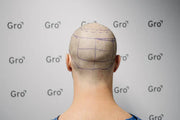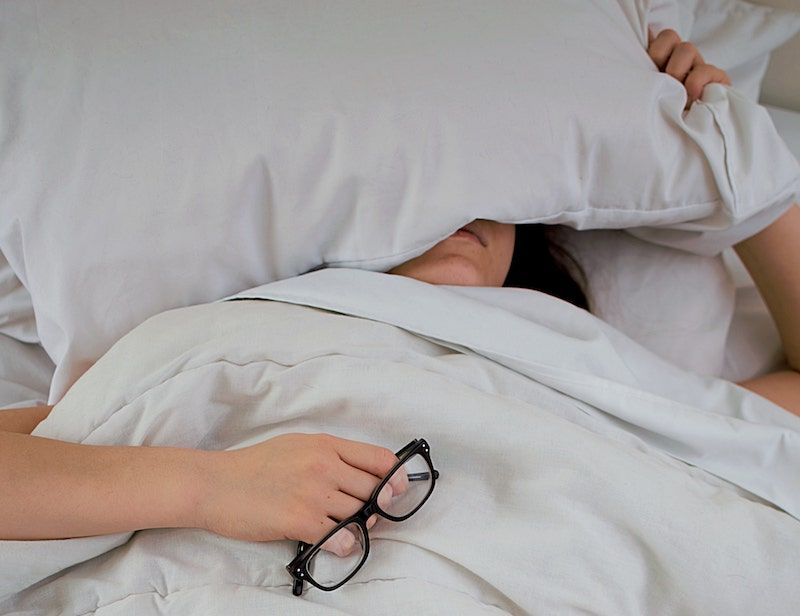When Will Smith walked up to the stage at the Oscars and slapped host Chris Rock, it immediately became the most talked-about moment of the night.
Rock had just cracked a joke at the expense of Smith’s wife Jada Pinkett Smith, who suffers from hair loss due to a medical condition called Alopecia Areata.
The Oscars are sure to produce a viral moment or two each year, but this was even more controversial than usual. While violence is never the answer, the context behind Smith’s reaction is important to understand.
Many have debated who was in the right – Smith or Rock – but little focus has been on how Pinkett Smith may be feeling. As anyone suffering from hair loss would know, the constant jabs, jokes and even blatant stares are not so funny to experience daily.

What happened at the Oscars?
While presenting an award, Rock made a joke about Pinkett Smith starring in a G.I. Jane sequel, referring to a movie where Demi Moore plays a Navy SEAL who shaves her head.
The camera panned to Pinkett Smith who rolled her eyes, looking visibly upset.
Smith walked onto the stage and seemed to slap Rock in the face with an open palm, then returned to his seat and shouted “keep my wife’s name out of your f****ing mouth.”
Many have wondered whether the whole incident is staged, but it’s hard to imagine Pinkett Smith would wish attention like this upon herself. She has been outspoken about her ongoing battle with Alopecia Areata since first bringing it up in 2018 on her Red Table Talk series.
“A lot of people have been asking why I’ve been wearing turbans. Well, I haven’t talked about it. It’s not easy to talk about, but I am going to talk about it,” Pinkett Smith said.
“I was in the shower one day and had just handfuls of hair in my hands and I was just like, ‘Oh my God, am I going bald?'” she shared. “It was one of those times in my life where I was literally shaking in fear.”
In 2021, Pinkett Smith posted a video on her Instagram, explaining she was shaving her head because she couldn’t hide the extent of her hair loss anymore (and she looks incredible in a buzzcut, by the way).
The short introduction to Alopecia Areata
Alopecia Areata is an autoimmune condition that causes hair to unexpectedly fall out in patches. In some cases, the hair loss can be rapid and extreme, and it can also affect eyelashes, eyebrows and body hair.
The condition often develops rapidly and the individual will start to notice their hair falling out in patches in a matter of days.
For some people, Alopecia Areata stops at a few patches, and they may even fully recover and grow back all their hair. However, that’s not the case for everyone, and the condition can return with years between instances.
Currently, there’s no treatment for Alopecia Areata, but there are some treatments that may help with growing the hair back and preventing the hair loss from happening again. However, more research is needed on the illness.
Why Alopecia is no joke
Anyone with hair loss knows it sucks to take constant jokes, stares and giggles on the chin. Pinkett Smith’s reaction to the original joke says it all – she looks fed up and hurt.
Like hereditary hair loss, Alopecia Areata doesn’t directly affect a person’s health. That being said, the mental health effects can be debilitating.
Accepting sudden, extreme hair loss and even baldness may not seem like a big deal – until it happens to you.
Two things can be true at the same time. Violence is never acceptable and hair loss (or any medical condition for that matter) shouldn’t be a punchline (excuse the choice of words). No matter the type of hair loss, it can have a significant impact on a person’s mental health and quality of life.
Maybe this altercation at the Oscars will at last start a conversation about how we all need to be more sensitive about alopecia, and not mock the people suffering from it.
What to do if you suffer from Alopecia
First things first: there are multiple types of Alopecia or hair loss, stemming from different causes.
Here at Gro, our treatments sadly won’t help those suffering from Alopecia Areata, but we can help with Androgenetic Alopecia (male/female pattern baldness). You can access hair loss treatments through Gro Online Care or book a free consultation to find out more about hair transplants.
If you’re losing hair for other reasons, don’t give up just yet. Speak with your GP to get a diagnosis first, and from there, you can start exploring solutions with the right health professionals.













